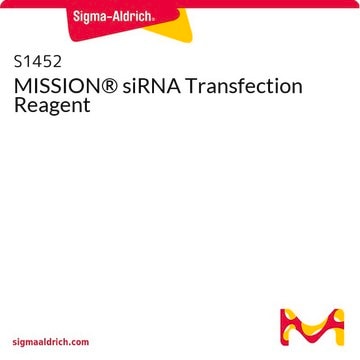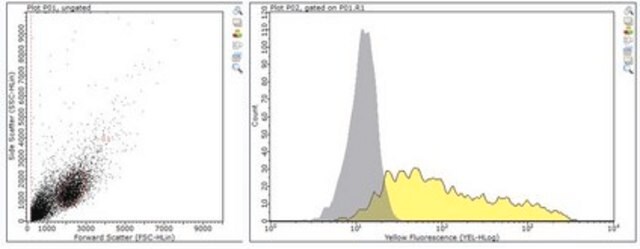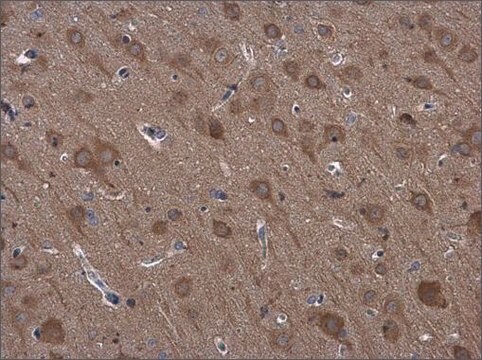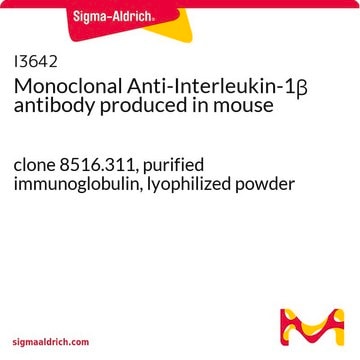MABF1971M
Anti-NKR-P1B (CD161b) Antibody, clone Stok27
clone Stok27, from rat
Synonyme(s) :
Killer cell lectin-like receptor subfamily B member 1B allele B, CD161 antigen-like family member B, Immunoreceptor NKR-P1C, Natural killer cell surface protein NKR-P1B allele WAG/PVG/BS, Natural killer lymphocyte receptor P1B, CD161b
About This Item
Produits recommandés
Source biologique
rat
Niveau de qualité
Forme d'anticorps
purified antibody
Type de produit anticorps
primary antibodies
Clone
Stok27, monoclonal
Espèces réactives
rat
Conditionnement
antibody small pack of 25 μL
Technique(s)
flow cytometry: suitable
immunoprecipitation (IP): suitable
Isotype
IgG2aκ
Numéro d'accès NCBI
Numéro d'accès UniProt
Modification post-traductionnelle de la cible
unmodified
Informations sur le gène
rat ... Klrb1C(683758)
Catégories apparentées
Description générale
Spécificité
Immunogène
Application
Flow Cytometry Analysis: A representative lot detected NKR-P1B (CD161b) in Flow Cytometry applications (Kveberg, L., et. al. (2006). J Immunol. 176(7):4133-40; Smelt, M.J., et. al. (2014). Cell Transplant. 23(11):1381-94).
Qualité
Flow Cytometry Analysis: 1 µg of this antibody detected NKR-P1B (CD161b) in Rnk16 (Rat NK) cells stably transfected with Stok27 (NKR-1B) antigen.
Description de la cible
Forme physique
Autres remarques
Not finding the right product?
Try our Outil de sélection de produits.
Code de la classe de stockage
12 - Non Combustible Liquids
Classe de danger pour l'eau (WGK)
WGK 1
Point d'éclair (°F)
does not flash
Point d'éclair (°C)
does not flash
Certificats d'analyse (COA)
Recherchez un Certificats d'analyse (COA) en saisissant le numéro de lot du produit. Les numéros de lot figurent sur l'étiquette du produit après les mots "Lot" ou "Batch".
Déjà en possession de ce produit ?
Retrouvez la documentation relative aux produits que vous avez récemment achetés dans la Bibliothèque de documents.
Notre équipe de scientifiques dispose d'une expérience dans tous les secteurs de la recherche, notamment en sciences de la vie, science des matériaux, synthèse chimique, chromatographie, analyse et dans de nombreux autres domaines..
Contacter notre Service technique








